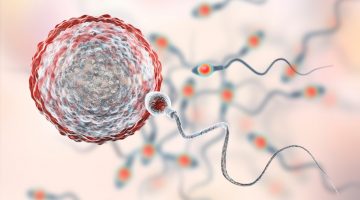Unexplained Infertility

A diagnosis of unexplained infertility or idiopathic infertility is usually made when all of our testing is complete and there is not an obvious source of the problem. The man’s sperm count looks reasonably normal in volume, motility, concentration and morphology. The woman has regular menstrual cycles which indicate she is likely ovulating. The hysterosalpingogram shows that the fallopian tubes and uterus are in normal condition. And, there are no obvious, systemic diseases (such as autoimmune diseases, diabetes, or previous history of cancer, radiation or chemotherapy) that may explain a history of infertility. Ovarian reserve is good and the woman has an AMH (Anti-Müllerian Hormone) level of greater than 1.
It is important to understand what unexplained infertility really means: The diagnostic testing we have available will only identify the major reasons why a couple may have a difficult time getting pregnant and staying pregnant, but it certainly cannot identify all of the reasons.
How common is unexplained infertility?
About 20-30% of couples will have no definitive diagnosis after completing a standard infertility evaluation. True unexplained infertility may be related to egg and sperm dysfunction, among other causes. These conditions are difficult to establish through conventional testing. If the fallopian tubes are blocked or there is no sperm, these are obvious major obstacles to becoming pregnant. Unfortunately, there are no tests available for more subtle infertility factors such as inadequate egg quality which could result in fertilization failure.
Is testing is available for unexplained infertility?
In today’s fast-paced treatment paradigm, some patients prefer to move forward with treatment without further clarification. Although oftentimes appropriate, this strategy should not be applied to every patient/couple. Laparoscopy and hysteroscopy are minimally invasive, out-patient surgeries that can provide a diagnosis and sometimes even offer improved pregnancy rates if scar tissue or endometriosis is found and treated at the time of surgery.
What causes unexplained infertility?
Dr. Kiltz believes that unexplained infertility is likely related to our daily environment, major and minor stress factors and diet. Stress and our environment are known to affect cortisol and epinephrine levels and have a significant effect on the immune system. There is considerable evidence that diets high in carbohydrates have not only created the significant obesity problem in our modern world, but also an explosive number of autoimmune issues that affect every organ system, including both the female and male reproductive systems. It is our belief that inflammation is probably the number one source of fertility dysfunction. This means reduced chances of conceiving and implanting, and a significant increase in miscarriages. It may even be related to spontaneous chromosomal abnormalities with DNA damage due to chronic or acute inflammation.




